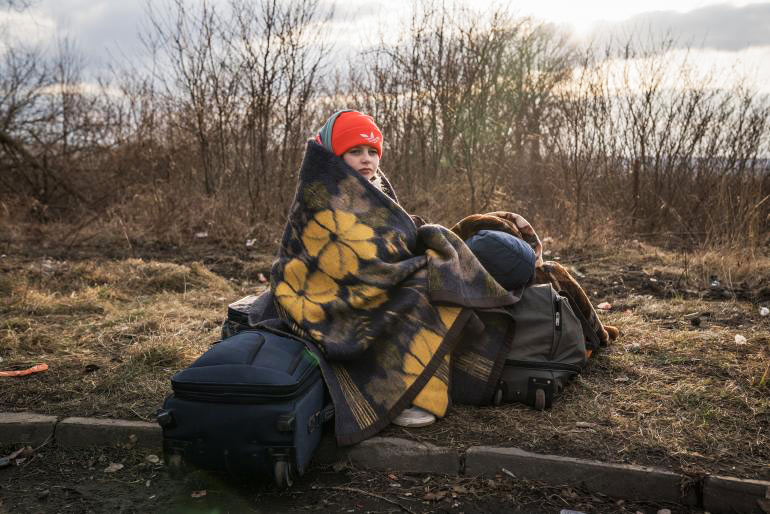“The number of children on the move is staggering, an indication of how desperate the situation for children and families in Ukraine has become,” said UNICEF Regional Director for Europe and Central Asia Afshan Khan. “Children are leaving everything they know behind in search of safety. This is heart-breaking.”
So far, 6 trucks carrying nearly 70 tons of supplies have arrived to Ukraine. The supplies include personal protection equipment and medical, surgical and obstetric kits.
Working with partners, UNICEF teams in Ukraine will be delivering medical supplies to 22 hospitals in 5 different conflict-affected areas of Ukraine, to benefit 20,000 children and mothers.
UNICEF renews its call for safe, rapid and unimpeded humanitarian access to reach populations in need, and for the safe passage of civilians to reach the services and protection to which they are entitled.
Across the border, three trucks were dispatched from Copenhagen – UNICEF’s warehouse and the largest humanitarian hub in the world – carrying essential supplies, such as early childhood development, recreational and hygiene kits. These supplies have now arrived in Poland.

Additional supplies are on their way from Copenhagen and from Turkey, and are due to arrive in the coming days.
To assist children and families on the move from Ukraine to Moldova, Poland, Romania and Belarus, UNICEF has set up “Blue Dots,” one-stop safe spaces that provide key information to traveling families and the ability to identify unaccompanied and separated children and ensure their protection.
UNICEF is appealing for US$ 349 million to prevent a further deterioration of the welfare of children in Ukraine and neighbouring countries and to enable the effective provision of critical life-saving support. This includes US$ 276 million for immediate needs within Ukraine and US$73 million in neighbouring countries.
“We’re doing everything we can to help the children and families in need but the war must end. Peace is the only sustainable solution,” Khan said.
Source: www.unicef.org, Foto: UNICEF/UN0599229/Moldovan